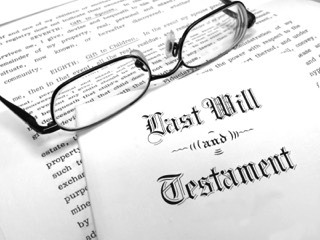Introduction
Business Email Compromise (BEC) is a highly sophisticated scam wherein perpetrators target businesses or individuals in the midst of legitimate fund transfers. The scam involves compromising email accounts through social engineering or computer intrusion to conduct unauthorized transfers of funds by deceiving the targets.
The Scope of BEC
BEC scams have been on the rise since 2015, targeting various entities, including small local businesses, large corporations, and personal transactions. From December 2021 to December 2022, reported losses globally increased by 17%, with the real estate sector witnessing a specific connection to BEC reporting.
These scams have affected all 50 U.S. jurisdictions and 177 countries, with fraudulently obtained funds flowing to over 140 countries. Hong Kong and China were the primary international destinations for these illicitly obtained funds, with the United Kingdom, Mexico, and Singapore following closely.
Between October 2013 and December 2022, the FBI received reports of 277,918 domestic and international incidents of BEC, leading to an aggregate loss of nearly $51 billion. In the United States alone, there were 137,601 reported incidents during this period, resulting in an aggregate loss of just over $17 billion.
BEC and the Real Estate Sector
BEC scams have shown a particular interest in the real estate sector. Reports to the FBI regarding BECs with ties to real estate reached an all-time high in 2018, followed by a subsequent decline, a minor spike in 2021, and another increase in 2022.
The real estate industry’s participants, including buyers, sellers, attorneys, title companies, agents, and brokers, are all potential targets for BEC perpetrators. By gaining access to an email account involved in a real estate transaction, scammers can monitor the process and execute fraudulent requests, such as changing payment types or bank accounts to redirect funds.
Based on FBI victim complaint data, there was a 27% increase in victim reports of BECs connected to real estate transactions between 2020 and 2022. During this period, there was also a staggering 72% increase in victim losses related to such BECs. These rising losses may have contributed to the inflation in real estate costs over the last few years.
Protection Measures
To safeguard residential property owners in Massachusetts from falling victim to BEC scams targeting real estate, Registries of Deeds have adopted a “Customer Notification Service.” This service notifies property owners, via email, whenever a new document is recorded for their property, helping them stay alert to potential scams.
To protect against BEC scams and other phishing attempts, follow these suggestions:
- Be cautious with unsolicited phone calls and avoid answering “Yes” or “No” questions from unknown callers.
- Use two-factor or multi-factor authentication for verifying unexpected requests for changes in destination account information.
- Verify the email sender’s identity by contacting a known individual at the original company before clicking on any links.
- Watch out for misspelled or slightly altered domain names in hyperlinks.
- Refrain from sharing login credentials or Personal Identification Information via email, as scammers often employ “spoofing” to create fake accounts that appear legitimate.
- Double-check the sender’s email address, especially on mobile or handheld devices, to ensure it matches the claimed sender.
- Allow full email extensions to be viewed in employees’ computers to avoid missing crucial information.
- Regularly monitor corporate and personal financial accounts for any irregularities, such as missing deposits.
- Always verify payment and purchase requests in person or by calling the requester directly to ensure legitimacy.
Reporting Suspected BEC Activity
If you suspect that you have fallen victim to a BEC scam, take immediate action:
- Contact the financial institution involved in the funds transfer to request they contact the recipient institution.
- Reach out to the nearest FBI field office to report the incident.
- File a complaint with the FBI’s Internet Crime Complaint Center.
Protecting yourself and staying vigilant is crucial in the face of the ever-evolving BEC scam. By implementing these protection measures and reporting any suspicious activity promptly, we can collectively work towards minimizing the impact of this pervasive threat.



